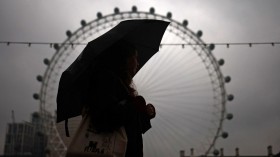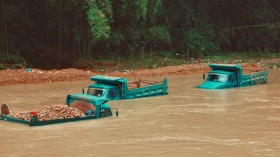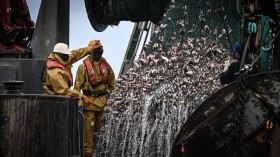Creating ladders to possibly reach Mars in the future, China will be sending two taikonauts (or corresponding to astronauts) outside Earth this Monday to stay at the previously launched Tiangong 2-- their currently operating space laboratory.
Sept. 15 this year, the Republic of China has blasted their uncrewed Tiangong-2 spacecraft in continuation of the tests done by their previous space lab Tiangong-1, which went unoperational last March. The second space lab was intended in preparation of China's 2020 Space Station. It was estimated that the space lab will be around 236 miles or 380 kilometers above Earth and settle into an orbit, which will later climb at about 244 miles or 393 kilometers where the China's Space Station will soon operate. With their calculations, it seems that they did their math after confirming that the two astronauts, Jing Haipeng and Chen Dong ,were officially named by the Chinese officials regarding the country's latest space mission.
Read: Will China Become the Only Country With a Space Station by 2024?
Aboard Shenzou 11 spacecraft, the two astronauts will be leaving Earth at 7:30 a.m. (11:30 p.m. GMT) as quoted by WHIO on a live telecast interview to China's Deputy Director Wu Ping. Shenzou will be flying off from Jiuquan Satellite Launch Center located at China's Gobi Dessert with Long March-2F rocket. Upon reaching the space lab, the astronauts are expected to stay for 30 days to do system testings and other medical and scientific experiments as well as to test the laboratory's ability to support life.
The space laboratories were intentionally called "Tiangong" because it meant "Heavenly Place" in Mandarin Chinese. On China's foresight, these space missions are envisioned to create a ladder of success and understanding regarding their goal to set mission on Mars.
On a separate briefing mentioned by TheGuardian, Deputy Director Wu Ping, who is also the Space Programme Official, assured that everything is already set, including the conditions of the astronauts.
"It is any astronaut's dream and pursuit to be able to perform many space missions," Jing Haipeng added regarding the mission which will be his third outer space trip since 2008.
© 2024 NatureWorldNews.com All rights reserved. Do not reproduce without permission.




![Great White Sharks Observed for the First Time Changing Their Behavior in Different Marine Environments [Study]](https://1471793142.rsc.cdn77.org/data/thumbs/full/70251/280/157/50/40/great-white-sharks-observed-for-the-first-time-changing-their-behavior-in-different-marine-environments-study.jpg)
